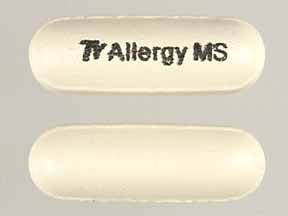Tylenol Allergy Multi-Symptom Interactions
There are 604 drugs known to interact with Tylenol Allergy Multi-Symptom (acetaminophen/chlorpheniramine/phenylephrine), along with 11 disease interactions, and 1 alcohol/food interaction. Of the total drug interactions, 46 are major, 543 are moderate, and 15 are minor.
- View all 604 medications that may interact with Tylenol Allergy Multi-Symptom
- View Tylenol Allergy Multi-Symptom alcohol/food interactions (1)
- View Tylenol Allergy Multi-Symptom disease interactions (11)
Most frequently checked interactions
View interaction reports for Tylenol Allergy Multi-Symptom (acetaminophen / chlorpheniramine / phenylephrine) and the medicines listed below.
- acetaminophen / oxycodone
- acyclovir
- Aczone (dapsone topical)
- Advair Diskus (fluticasone / salmeterol)
- Afrin (oxymetazoline nasal)
- albuterol
- Allegra (fexofenadine)
- Ambien (zolpidem)
- aspirin
- Benadryl (diphenhydramine)
- cetirizine
- cyclobenzaprine
- diphenhydramine
- Flexeril (cyclobenzaprine)
- gabapentin
- hydrocodone
- ibuprofen
- loratadine
- MiraLAX (polyethylene glycol 3350)
- Mucinex (guaifenesin)
- omeprazole
- ondansetron
- Pataday (olopatadine ophthalmic)
- tramadol
- Tylenol (acetaminophen)
- Tylenol Extra Strength (acetaminophen)
- Vitamin C (ascorbic acid)
- Vitamin D3 (cholecalciferol)
- Xanax (alprazolam)
- Zyrtec (cetirizine)
Tylenol Allergy Multi-Symptom alcohol/food interactions
There is 1 alcohol/food interaction with Tylenol Allergy Multi-Symptom (acetaminophen / chlorpheniramine / phenylephrine).
Tylenol Allergy Multi-Symptom disease interactions
There are 11 disease interactions with Tylenol Allergy Multi-Symptom (acetaminophen / chlorpheniramine / phenylephrine) which include:
- alcoholism
- liver disease
- cardiovascular disease
- PKU
- anticholinergic effects
- asthma/COPD
- cardiovascular
- renal/liver disease
- BPH
- diabetes
- glaucoma
More about Tylenol Allergy Multi-Symptom (acetaminophen / chlorpheniramine / phenylephrine)
- Tylenol Allergy Multi-Symptom consumer information
- Compare alternatives
- Drug images
- Side effects
- Dosage information
- Drug class: upper respiratory combinations
- En español
Related treatment guides
Drug Interaction Classification
| Highly clinically significant. Avoid combinations; the risk of the interaction outweighs the benefit. | |
| Moderately clinically significant. Usually avoid combinations; use it only under special circumstances. | |
| Minimally clinically significant. Minimize risk; assess risk and consider an alternative drug, take steps to circumvent the interaction risk and/or institute a monitoring plan. | |
| No interaction information available. |
See also:
Further information
Always consult your healthcare provider to ensure the information displayed on this page applies to your personal circumstances.


